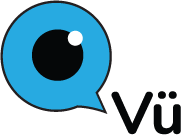Typically, the Hard of Hearing have a translator or note taker to observe, listen and translate what is going on in the group. Without a translator, the Hard of Hearing can quickly lose track of who is talking and miss much of what is being said. It’s even worse when the group quickly transitions to a new topic.
Unfortunately, the group may not understand the challenges that we face and consider requests to repeat the conversation as, “Are you paying attention?” or, worse, “Do you understand?”
To compensate for my disability, I listen to speech, read lips and use other visual cues to fully comprehend what the speaker is saying. As such, I miss audio and even visual cues from other speakers entirely.
I realize someone else is talking only when the speaker I am following responds to the new speaker. By the time I redirect my attention to the new speaker, I have missed the first part of what that person said. Sometimes the context can help to fill in the gap.
Of course, if it’s a new area of discussion, that’s another challenge. Repeat this over the course of a lengthy discussion and I get utterly and completely lost in translation. It can feel very overwhelming.
There are other things that add to difficulty in comprehension. Some speakers mumble, speak very quickly, or slur their words. Other speakers may cover their mouths or turn away when speaking making. It’s hard to read what I can’t see. Add the cross talk of simultaneous speakers only compounds the challenge for me to follow along.
The Hard of Hearing expend so much effort trying to follow and understand the discussions of different speakers. We tire easily from the stress. It’s very much like learning to speak a new language and constantly struggling to translate to their native language first. In essence, we are single lane roads trying to handle the traffic and congestion of a superhighway.
